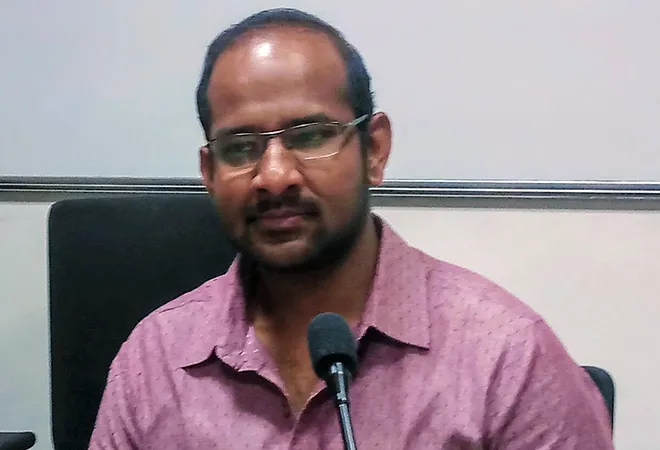“The proposed Higher Education Commission of India is nothing more than mere transformation of power from academicians to administrators,” according to Dr. M Anandakrishnan
, educationist and former Chairman, IIT-Kanpur and also the Madras School of Development Studies (MIDS).
Initiating an interaction on “Higher Education Commission of India” at the Chennai Chapter of Observer Research Foundation on 13 October, Dr Anandakrishnan differentiated the University Grants Commission (UGC) from the Higher Education Commission of India (HECI) by giving a wide perspective on the issues and concerns in this regard. He said the HECI, which aims at replacing the UGC wholesale, is aimed at improving academic standards with focus on learning outcomes, evaluation of academic performance by institutions and training of teachers. However, the HECI scheme, as proposed now, also seeks to over-regulate and micro-manage universities. Given the very high number of universities and colleges in the country, micro-managing them and ideas about doing so does not mean an easy deal, said Dr Anandakrishnan.
Through the HECI, the Union Ministry of Human Resource Development (MHRD) has proposed to bring the department of higher education into a highly centralised system and transfer most/all powers to the administrative authority from the academics. This, according to Dr. Anandakrishnan, would hurt the education system, through the short, medium and long terms.
Three-level change
The HECI, Dr Anandakrishnan pointed out, is expected to bring changes at three different levels, namely the government, academic institutions (universities and colleges, etc) and students. Speaking on the changes, impacting at government level, he said the HECI is aimed at restricting the role of the States, and gaining more control for the Centre. Coming to the level of universities and other academic institutions, the HECI will be more authoritative and will reflect the collective strength of campus authorities less and less, trivialising the concept of autonomy.
Under the proposed scheme, the freedom the academic boards of individuals universities and other institutions have been restricted, not only by the policies stated above. The power of these institutions to offer new courses is also proposed to be taken away. They could do so only with the concurrence of HECI. Likewise, the Centre will have the power to remove the chairperson and vice-chairperson of the HECI, though only with strong reasons. This will again put the brake on the autonomy of the regulators and also bring down the autonomy of the academic institutions.
If any in respect of any course of study offered by any institution is not in compliance with the provisions of the regulations issued by the HECI, the commission may impose a penalty, such as fine or withdrawal of power to grant degrees or diplomas on them. On other hand, the proposed guidelines on the HECI’s role in universities granting affiliation to colleges tantamount to the proverbial ‘elephant in the room’, said Dr Anandakrishnan.
At the same time, at the level of the students, the syllabus with learning outcomes specified will be very useful. But coming to the values, norms or discipline which is the primary goal of education, the final outcome could pose a big question, exclaimed Dr Anandakrishnan.
Funding higher education
The Higher Education Funding Agency, which is a non-banking financial institution proposed under the HECI law, will be providing capital only for development, neither for operations, nor for research. The capital too should be paid back by the institutions whereas the interest on the loan advanced by the Agency will be borne by HRD Ministry. This is also where Dr Anandakrishnan questioned the in-built schemes under the proposal, for medium and long-term development of academic institutions.
Unlike other commissions and committees that study issues of the kind for the government and propose changes, the one set up for higher education reforms in the country did not address the reasons for inefficiency of the UGC, if any, and why UGC had to be scrapped. Without listing the deficiencies of the UGC, another commission has been proposed, which is just a mere transformation of power from academicians to the administrators, Dr Anandakrishnan said.
Surprisingly, neither political parties nor the academic community has protested or questioned these “education reforms”, as they should be. Independent of these issues and concerns over the proposed policy, even implementing the same across hundreds of universities and colleges all over the country too may be problematic.
Dr Anandakrishnan concluded that the HECI could destroy academic independence and diversity that have evolved over years and decades, through over-regulation and centralised micro-managing of universities and other academic institutions.
This report was prepared by S. Sivanesan, Associate, Observer Research Foundation, Chennai
The views expressed above belong to the author(s). ORF research and analyses now available on Telegram! Click here to access our curated content — blogs, longforms and interviews.
